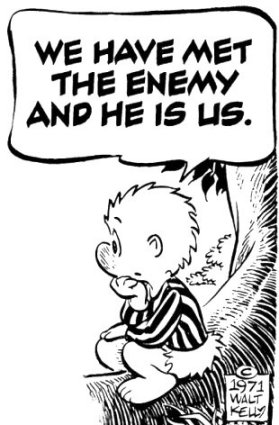
I cannot predict the outcomes of elections but one thing I can be certain about is next week either way millions of us will be deeply disappointed. In the past this did not cause any extraordinary concern but the escalating partisan enmity suggest that next week could see elevated outbreaks of public tension and likely confrontation.
I continue to be inspired by this group's ability to carry on civil discussion about every hot current events topic that comes along. I think the reason we can do this is mutual respect for each other, helped no doubt by common interest (in audio electronics).
I hope we can try to extend the same courtesy we extend to each other, to outsiders even if underserving. It is human nature to look outside ourselves to assign blame. It is easy to blame political leaders from both parties (because they deserve it), not to mention media for fanning the flames. They all are just promoting their own self interest but this does not make it OK, just understandable.
Good luck to us all, who I expect to survive next week just fine, and good luck to everybody else who lack the good model for how to behave that we enjoy.
JR
PS: Forgive my unsolicited introspection but I'm old... 8)








![Electronics Soldering Iron Kit, [Upgraded] Soldering Iron 110V 90W LCD Digital Portable Soldering Kit 180-480℃(356-896℉), Welding Tool with ON/OFF Switch, Auto-sleep, Thermostatic Design](https://m.media-amazon.com/images/I/41gRDnlyfJS._SL500_.jpg)























